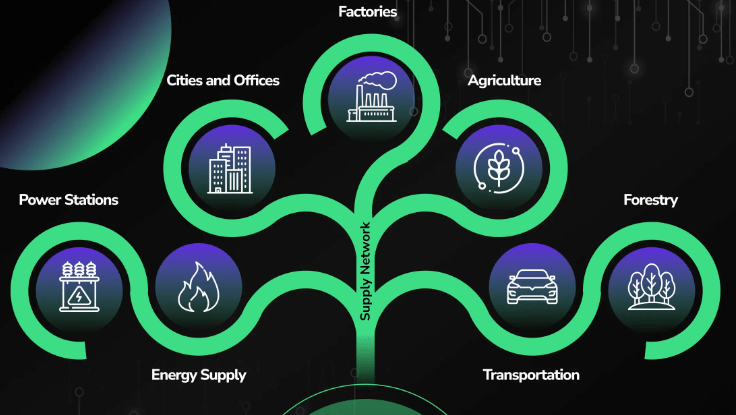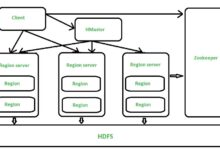How is Artificial Intelligence Being Used to Enhance Sustainability Practices in Businesses?

Introduction
Artificial intelligence (AI) is increasingly becoming a pivotal tool in promoting sustainability within business operations. From optimizing resource use to reducing waste and improving energy efficiency, AI’s capabilities are being leveraged to support environmentally and socially responsible practices. This article explores the diverse applications of AI in sustainability efforts across different sectors, highlighting key innovations, benefits, and future trends.
AI and Resource Management
AI technologies play a crucial role in resource management by enabling more efficient use of materials and energy. Machine learning algorithms can predict resource needs, minimize waste, and optimize production schedules, ensuring that resources are used more sustainably.
AI in Energy Efficiency
Businesses are using AI to enhance their energy efficiency. AI systems can monitor and control energy use in real-time, significantly reducing unnecessary consumption. This not only helps businesses cut costs but also contributes to broader environmental goals like reducing carbon emissions.
Waste Reduction Through AI
AI contributes to significant reductions in waste production. Through predictive analytics, businesses can better forecast demand and adjust production accordingly. Additionally, AI-driven robotics are employed to sort and recycle waste more efficiently than ever before.
AI and Water Conservation
Water scarcity is a pressing global issue, and AI is providing solutions here as well. AI applications in water management include leak detection systems that use sophisticated algorithms to identify leaks and inefficiencies in water usage, thereby preventing wastage.
AI-Driven Supply Chain Optimization
AI enhances supply chain transparency and efficiency, which can lead to more sustainable practices. By analyzing data collected throughout the supply chain, AI helps companies identify the most energy-efficient routes, reduce fuel consumption, and lower their environmental footprint.
Enhancing Green Building Practices with AI
In the construction and real estate platforms, AI is instrumental in creating and managing green buildings. From optimizing building energy systems to regulating indoor temperature and air quality, AI tools help in maintaining sustainable building practices.
AI in Sustainable Agriculture
AI is revolutionizing agriculture with techniques that increase crop yield and reduce waste. Drones and AI-based sensors can monitor crop health, optimize water use, and provide data-driven insights for sustainable farming practices.
Corporate Sustainability Reporting and AI
AI improves the accuracy and efficiency of corporate sustainability reporting. By automating data collection and processing, AI ensures that businesses can more easily comply with regulations and maintain transparency in their sustainability initiatives.
AI and Employee Engagement in Sustainability
AI tools also facilitate greater employee engagement in sustainability practices. Through training modules and real-time feedback systems, employees learn about their impact on sustainability goals and how they can contribute positively.
The Future of AI in Business Sustainability
Looking forward, the integration of AI into sustainability practices is expected to grow. Innovations such as AI for carbon capture and more sophisticated predictive analytics for environmental impact assessments will further enhance the sustainability efforts of businesses.
FAQs on AI and Business Sustainability
How does AI contribute to reducing carbon emissions in businesses? AI helps optimize operations and supply chains, which can significantly reduce a business’s carbon footprint by improving energy efficiency and reducing waste.
Can AI improve the financial performance of a company while enhancing sustainability? Yes, by reducing waste, optimizing resource use, and improving operational efficiencies, AI can lower costs and improve profitability alongside enhancing sustainability.
What are the challenges in implementing AI for sustainability? Challenges include the high initial cost, the need for data integration from various sources, and ensuring the AI systems themselves are designed and operated sustainably.
Is AI in sustainability applicable to small and medium enterprises (SMEs)? Absolutely, even small-scale implementations of AI can lead to significant sustainability improvements in SMEs, such as through energy management systems or waste reduction practices.
How secure is data in AI-driven sustainability initiatives? Data security is crucial, and robust cybersecurity measures are necessary to protect the integrity and confidentiality of data used in AI-driven sustainability solutions.
What skills are needed to leverage AI in sustainability efforts? Skills in data science, AI programming, sustainability practices, and an understanding of industry-specific knowledge are critical to effectively leveraging AI in sustainability efforts.
Conclusion
Artificial intelligence is transforming sustainability practices across the business world, offering innovative solutions to some of the most pressing environmental challenges. By integrating AI into their operations, businesses not only contribute to global sustainability goals but also enjoy improved efficiency and reduced operational costs. As technology advances, the role of AI in sustainability is expected to become more pronounced, driving further innovations and efficiencies in the years to come.






